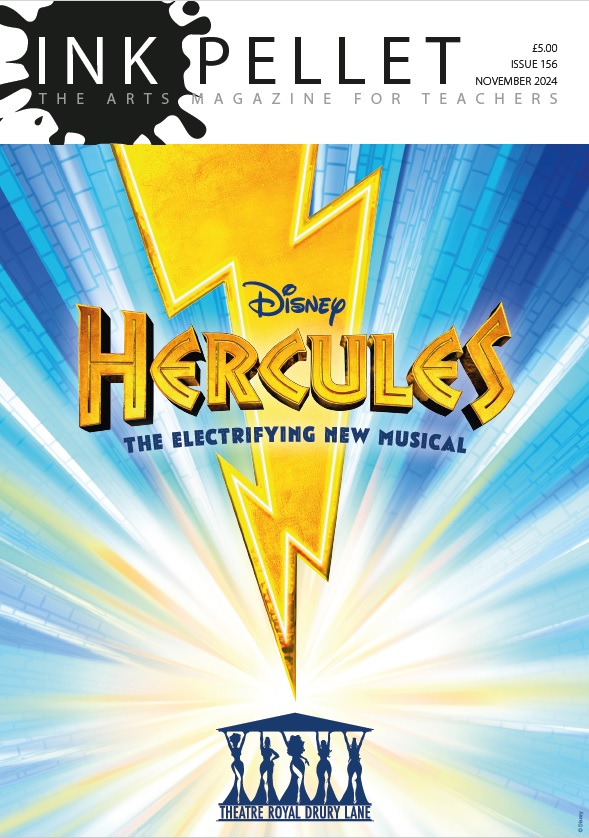Susan Elkin chatted to Cressida Cowell, new Children’s Laureate, about her journey and aspirations for her tenure.
Cressida Cowell, author and illustrator, started her term as Waterstones Children’s Laureate this summer. With internationally best-selling series How to Train Your Dragon under her belt and, more recently, The Wizards of Once, she now seems all set to spend two years promoting children’s reading for the sheer, unashamed love of it. And her new book, Knock Three Times the third in the Wizards of Once series is published this month.
Now in its twenty first year, Children’s Laureate is a role awarded biennially to a “writer or illustrator of children’s books to celebrate outstanding achievement in their field.” The post stemmed from a discussion between the (late) Poet Laureate Ted Hughes and children’s novelist Michael Morpurgo and launched in 1999 with the job going to Quentin Blake. Other Children’s Laureates since have included Jacqueline Wilson, Malorie Blackman as well as Michael Morpurgo.
The award, which includes as £15,000 bursary, is funded by several publishing industry and charity sector sponsors, including the Museums, Libraries and Archives Council. With effect from this year, the main sponsor is Waterstones bookshop. It was sponsored by Ottakar’s before the two companies merged.
Each Children’s Laureate has a theme. What will Cressida’s be? I ring her to ask, but am first entranced by the sound of her three-year-old family dog, Pigeon who is half whippet, a quarter poodle and a quarter terrier. “Oh yes, he’s a Proper Dog” she laughs “And he’s great because he forces me out walking every day regardless of the weather. We live near the river in North London and it’s good walking territory for both of us.”
And so, to her Laureate theme. “I’ve written a ten-part charter” she says. “I feel passionately, for example, that if a child comes from a bookless home and there is no library how is he or she ever going to access books for pleasure? And children who read for pleasure, incidentally, do better with every aspect of schoolwork too, although that’s not my main reason for championing it.”
Cressida also waxes lyrical about the importance of children being read aloud to. “When I was a child, we had story tapes in the car and they live with you all your life – Kipling, Sherlock Holmes and so on in my case.” She adds: “My own books are beautifully read for audio by David Tennant and I’m delighted about that. We have to get this message to parents that children need to hear stories and to associate books with something joyful. Thank goodness, at last, reading for pleasure is now part of schools’ Ofsted assessment”.
She’s a tremendously busy, prolific professional. How did it all start? “When I was a child my parents took us, from London, to a remote Scottish island every summer. There was no electricity and we had to take a fortnight’s food with us. Then later my dauntless father built a house there and we used to decamp for the whole summer. We had bottled gas and we caught fish…”
It meant that the children “largely unsupervised because parents back then didn’t see it as their role to entertain their offspring” had to rely on their own resources. “I always made up stories and because I was the eldest, I was told to tell them to the others. I clearly remember my very first effort. It was a love story between two hippos, inspired by Kipling.”
Cressida also drew and was disappointed, eventually, to find that there were no joint honours university courses in which you can do both creative writing and fine art. “And there still aren’t” she says ruefully telling me about her daughter who would also have liked to do both. Instead Cressida read English at Oxford (the Anglo-Saxon course, and especially the poetry, really helped her later with her books) and then did art at St Martins before she went to Brighton University. “It all took rather a long time” she sighs.
Today Cressida writes and draws in a special shed at the bottom of her garden where she has electricity and internet but no phone. “I banish myself to my very messy shed every day – unless I’m on a book promotion or schools tour, which take up about three months a year. The environment turns me inward which is what I need.”
She sees the Laureateship as a platform from which she’ll be able to promote creativity as well as reading. “After all, every achiever needs to be creative. It’s not exclusive to the arts. Look at Einstein, for example” she says, pointing out that such platforms are unusual. “World Book Day – I’m on the board – is another and there’s the National Literacy Trust but there aren’t many.”
When our conversation ends, she’s still chuckling and telling me to call back if I think of anything else I need to know. Cressida is warm and outgoing – she’ll be an excellent ambassador for children’s reading needs and entitlements.


